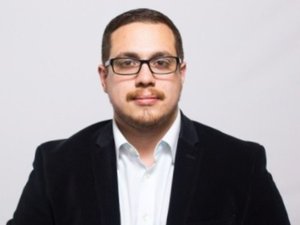
Ask Janice Omadeke when the idea for The Mentor Method came to her, and she'll say she's always felt like she was meant to start it.
The Mentor Method, as it stands currently, works with companies to ramp up their diversity initiative: What can they be doing to recruit top diverse talent? And how can they better retain the diverse talent they already have?
"It was the combination of me using my life story and negative experiences as a way to hopefully create positive ways for other people," she said.
Omadeke is first-generation American, and her parents immigrated to the U.S. from the Congo, so she says she's always understood the importance of giving back — hence why she says she was always meant to start her company.
"I've always understood the importance of pushing the ladder down and mentorship and advocating for someone, even if you don't have skin in the game," Omadeke said. "I've always had that profound understanding of giving back since I'm the byproduct of that."
Launching in 2016, The Mentor Method started out as a consumer-facing platform to pair women with mentors in their field based on an algorithm using shared interests and career goals. That might sound pretty basic, but Omadeke said too often you're seeing black women given company mentors based solely on the color of their skin. The new black woman hire is paired with one of the few other black women in the company, even if they don't have shared interests, for example.
Now, The Mentor Method is taking that idea a step further with their business-facing offering. Instead of focusing solely on mentorship, the company will start by working mostly with local companies to ramp up their diversity initiatives so they're doing more than just hiring a chief diversity officer and 1-2 minority candidates.
"They never took the opportunity to get to know me or my goals," Omadeke said of her experience in corporate mentorship programs. "That's where The Mentor Method birthed from. If we're going to build a stronger workforce and we want to see changes in diversity and inclusion, we need to do more than settling for terrible corporate mentorship programs and job fairs — things that consistently show that they're not effective."
When Omadeke was diving into the career market, she was always told she needed a mentor. But she didn't come from a family that was well-connected in her industry. She couldn't just call up a family friend to get help landing an internship or job; instead she found herself in the pool like the rest of us, at networking events hoping that one day we'd find that magic mentor.
Omadeke knew there had to be a better way. "I had to fight for everything," she said. "I went to networking events, and it was extremely awkward. It was like asking somebody out, but for your 401K."
And her idea for building a better mentorship initiative is catching on around Washington, D.C. Omadeke just completed her time as a part of SEED SPOT D.C.'s first cohort, where she won $5,000 from SEED SPOT's Audience Impact Award. She was a part of humble ventures' spring cohort. She's been featured in The Huffington Post, Entrepreneur magazine and elsewhere.
In May, the Washington, D.C. Economic Partnership selected The Mentor Method as its partner for its Pathways Scholarship, where the startup will lead mentors-matching for all scholars in the program. She was a SXSW 2017 ambassador for the WDCEP. In July, Omadeke started fundraising for a $550,000 seed round, as reported in The Washington Business Journal. Omadeke is also beginning to sign on bigger name D.C. clients, such as newly announced Deloitte.
So, with all of this happening that begs the question: How does Omadeke get it all done?
"Be kind," Omadeke said. "Entrepreneurship is hard enough, you don't need to be unkind. People respond positively when you're authentic and you're yourself, and you are over yourself."
Entrepreneurship is hard enough, you don’t need to be unkind.
Sundays are her time to be an introvert. She recharges and spends the day reflecting and unwinding so she can go into the work week feeling recharged and in the zone.
And Omadeke learned early on that she wasn't going to have all of the answers she needed. She needed to — somewhat ironically — find mentors and reach out for help early and often.
With that, she credits groups like Black Female Founders, Project 500 and the several incubator programs she's been a part of with much of her success.
It's those resources that helped her whenever she ran into challenges. A lot of people didn't think she could do it. A lot of people suggested she sit back and wait until she found a co-founder before launching her business. But Omadeke knew this was what she should be doing — and she wasn't going to wait to do it.
"Trust your gut. I know that's pretty standard, and everyone says that, but it's true," Omadeke said.
"I've really loved the entrepreneurship journey. I was built with resilience from my upbringing, so I've really enjoyed the challenges put in front of me. It makes it fun."




